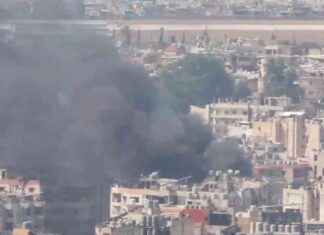A man named Ryan Wesley Routh, 58, has been charged in connection with an assassination attempt against former President Donald Trump in Florida. According to court documents, Routh dropped off a box at a home containing ammunition, four phones, and letters declaring the act as an assassination attempt.
Law enforcement was alerted by a civilian who received the box several months prior to the incident at Trump International Golf Club. The handwritten letter found in the box addressed to “The World” stated that the attempt had failed. Routh was arrested after a Secret Service agent spotted him with a rifle aimed at the former president on September 15.
Routh has been charged with possession of a firearm by a convicted felon and possession of a firearm with an obliterated serial number. The FBI found six cellphones in his vehicle, with one containing a Google search on how to travel from Palm Beach County to Mexico. Cell site records indicated Routh’s presence near Trump International and Mar-a-Lago.
Furthermore, agents discovered a notebook with names and phone numbers related to Ukraine, along with notes criticizing the Chinese and Russian governments. Law enforcement also found a rifle with an obliterated serial number, gloves, and plates capable of stopping small arms fire near the golf course where Routh was hiding.
During a court appearance, prosecutors alleged that Routh went to Trump International Golf Club with the intent to assassinate the former president. Despite his defense attorney offering housing arrangements, Routh was ordered to remain in jail pending trial by U.S. Magistrate Judge Ryon M. McCabe.
The incident has raised concerns about security measures at public places and the potential threats individuals may pose. The detailed planning and preparation involved in the attempted assassination highlight the importance of vigilance and proactive law enforcement efforts to ensure the safety of public figures.
In conclusion, the foiled assassination attempt serves as a stark reminder of the ongoing challenges related to protecting high-profile individuals and public events. It underscores the need for robust security protocols and swift action to prevent such incidents from occurring in the future.









